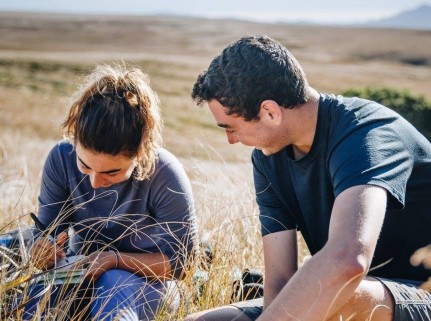Update from Linden on the South East Asia Program
In 2010, after the devastating earthquake hit Haiti, The Red Cross vowed to help Haitians rebuild their lives. But after 5 years, and almost $500 million dollars spent, only 6 permanent homes were built. Despite mismanagement and lack of transparency in the charity sector, for a long time it seemed like that was the only model to provide aid to disadvantaged communities. Paul Gill, co-founder of SONAS, is trying to show that it is not. We had the opportunity to spend 3 days working with Paul, who is helping grow and popularize a more long term and sustainable alternative to charity — social business.
Social businesses were first described by Nobel Peace Prize laureate Professor Mohammed Yunus, as a financially self-sufficient enterprise that is created and designed to address a social issue, where profits are reinvested in the company with the goal of maximizing social impact. Whereas charity provides short-term relief for individuals, social business improves lasting economic development for entire communities. Paul become interested in this concept after his company spent a quarter of a million dollars to send him and other employees on a trip to build a school in Cambodia. Once onsite, he realized the frivolity of his project — locals he talked to explained that they needed teachers, not more school buildings. The money the company had spent getting him there was a waste. He left Cambodia with an uneasy feeling about the “work” they had completed. Back home, he connected with Professor Yunus whose ideas on social businesses immediately resonated with him. Fast forward a couple months, and Paul is leaving his home and comfortable lifestyle to move to a rural village in Cambodia, with the plan to start SONAS.
SONAS, meaning abundance and happiness, is a social business focused on providing business support and development as education to small entrepreneurs in rural Cambodia. To launch SONAS, Paul and co-founder Linda, a Takeo village local, taught 6 women from the local village how to weave scarves. Having never worked before, many of these women were initially very hesitant to join, and were only convinced when Paul and Linda began pitching the new job as a fun hobby. It took three short weeks to teach the women how to weave and the scarves were immediate successes. They sold out of the beautiful handcrafted scarves within a month. The money the weavers made from the scarves was helping to pull their families out of poverty. These first six weavers taught other villagers and then those villagers taught others and the SONAS business began to really take off.
We were greeted by Linda, her family, and three recently adopted month-old puppies when when we arrived at the homestay. During our time, we were split into three small groups to design products/services that SONAS would implement in real life; group one was tasked with building a beauty product, group two, designing a fashion product, and group three, improving the SONAS brand message and social media presence. In a singe day, my group designed, created, and packaged a lip scrub. We designed four different flavors: coconut, coffee, dragon fruit, and Anchan flower. Our scrub is entirely made out of locally produced ingredients (coconut oil, cane sugar, and the natural mix-ins) and is going to be sold by SONAS at their upcoming holiday bizarre. The fashion group designed and sewed water bottle bags with a coconut shell button and the communications group produced a video about SONAS and revamped their website and Instagram. It was incredibly inspiring working with Paul, Linda, and so many other locals who were so passionate about improving their community and so willing to listen to our ideas and perspectives. I still can’t believe a product that I helped design is actually going to be produced and sold!

Leave a Comment
Your email address will not be published. Required fields are marked *